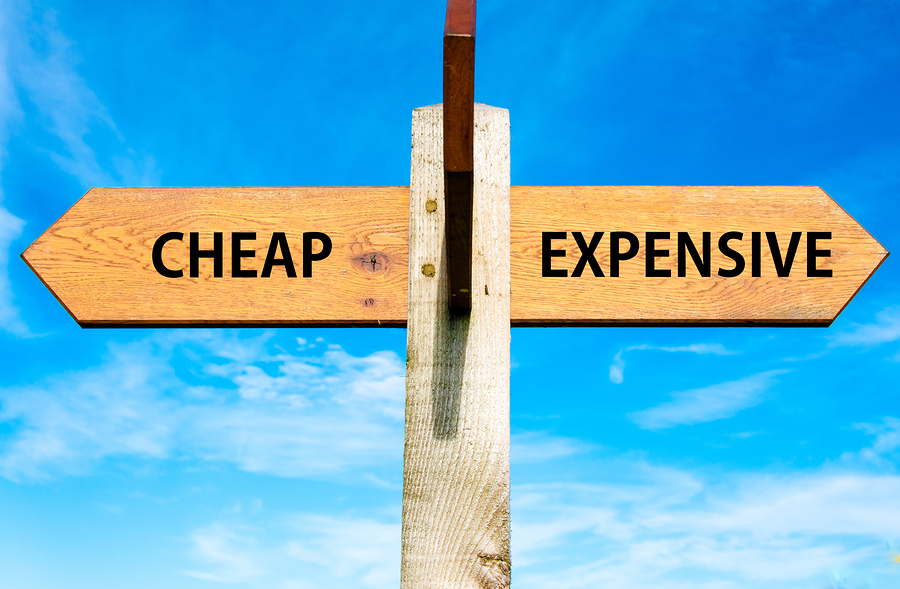 The first time I heard, “Cheap is expensive and expensive is cheap,” I swooned with delight. While in that moment it was being applied to a shopping situation (specifically: black pants — always buy the best quality black pants you can afford.) you can apply this idea across multiple aspects of business and life.
The first time I heard, “Cheap is expensive and expensive is cheap,” I swooned with delight. While in that moment it was being applied to a shopping situation (specifically: black pants — always buy the best quality black pants you can afford.) you can apply this idea across multiple aspects of business and life.
For example:
If you’re an employee who—for whatever reason—thinks it’s OK to run 15 minutes late/leave 15 minutes early day in and day out, you can bet that that 15 minutes is going to cost you at review time.
If you’re a boss and your employee asks for an unexpected personal day but—for whatever reason—you decide you must play by the rules, you can bet that’ll cost you the next time you need volunteers to do overtime.
If you’re running a business and—for whatever reason—you decide that an arbitrary markup of your merchandise/cutting corners on quality is OK, you can bet that customers will find somewhere else to spend their money.
You get the idea.
And, as noted, it’s just as applicable outside the office. Don’t feel like tipping your barista in the morning? Let’s see what happens when you need that latte in no time flat. Don’t want to acknowledge the extra 20 minutes the babysitter stayed? Let’s see what happens the next time you need someone to watch your kids Saturday night.
And it’s just as applicable in non-monetary situations. Suppose your employee does an outstanding job but you’re grumpy because you think he showed you up; or you keep changing your store’s hours because you’re driving your kid to be tutored; or you drop the ball in any old situation—being cheap about praise or information or being at fault is likely to be expensive in the long run.

